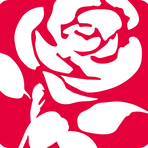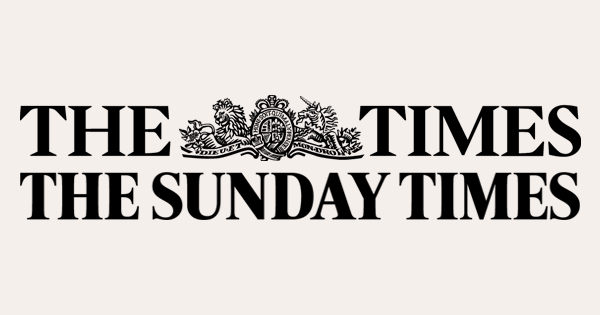The Shifting Sands of Public Trust: Russell Brand and the Political Landscape
May 3, 2025, 6:19 pm
In the heart of the storm, two narratives unfold. One is the tale of Russell Brand, a man once adored, now facing serious allegations. The other is the shifting political landscape of the UK, where parties scramble for relevance. Both stories reveal a society grappling with trust, accountability, and the quest for truth.
Russell Brand, a name that once echoed through comedy clubs and Hollywood sets, now resonates with allegations of rape and assault. The charges span from 1999 to 2005, a dark chapter in his life that is now under scrutiny. Four women have come forward, each with harrowing accounts of their encounters with the comedian. The allegations paint a picture of manipulation and violation, a stark contrast to the persona Brand cultivated.
In a London court, Brand was granted conditional bail. He must keep the court informed of his whereabouts, a tether to reality as he navigates this legal labyrinth. His life in Florida now hangs in the balance, contingent on his compliance. The stakes are high. If he falters, the consequences could be dire.
The prosecutor’s narrative is chilling. A woman raped in a hotel room, another dragged toward a toilet, and a third forced into a sexual act. Each story adds weight to the allegations, creating a tapestry of fear and betrayal. Brand’s denial is loud, a defiant shout against the tide of accusations. He claims to welcome the chance to prove his innocence, yet the shadows of his past loom large.
Brand’s rise to fame was meteoric. Known for his edgy humor and chaotic lifestyle, he became a household name. Yet, as he transitioned from the limelight to a more obscure online presence, he cultivated a following that thrives on wellness and conspiracy theories. This shift reflects a broader trend in society, where public figures can reinvent themselves, but not without consequences.
Meanwhile, the political landscape in the UK is equally tumultuous. Local elections are looming, and the air is thick with uncertainty. The Conservatives, once a dominant force, face potential annihilation. Polls suggest they could lose up to 450 councillors. Reform UK, a party on the rise, threatens to disrupt the status quo. The public’s appetite for change is palpable, a hunger for new voices in a system that feels stale.
Kemi Badenoch, the Conservative leader, stands at a crossroads. Her party’s survival hinges on navigating this electoral minefield. Speculation swirls around potential alliances with Reform UK, a lifeline in turbulent waters. Yet, Badenoch remains steadfast, ruling out any electoral pact. The stakes are high, and the clock is ticking.
The latest polls reveal a fractured public opinion. Reform UK leads with 26%, closely followed by Labour at 23%. The Conservatives trail, a shadow of their former selves. This shift signals a seismic change in voter sentiment. The electorate is restless, eager for alternatives that resonate with their frustrations.
The Liberal Democrats, once marginalized, are seizing the moment. They’ve welcomed former Labour councillors disillusioned by their party’s stance on key issues. This influx of new members revitalizes the Lib Dems, positioning them as a formidable force in local politics. Their rise underscores a broader trend: voters are searching for accountability and representation that aligns with their values.
The Greens, once seen as a natural ally for disenchanted left-leaning voters, now find themselves on the back foot. Their support has dwindled, highlighting the unpredictable nature of the current political climate. The two-party system, designed to simplify choices, is now a battleground for multiple voices. This fragmentation can lead to unexpected outcomes, where the traditional power dynamics are upended.
As the local elections approach, the atmosphere is charged. Voters are poised to make their voices heard, driven by a desire for change. The outcome could reshape the political landscape, echoing the sentiments of a populace that feels overlooked.
In both the courtroom and the political arena, the quest for truth is paramount. Russell Brand’s legal battles reflect a society grappling with accountability. The public’s response to his allegations will set a precedent for how we handle similar cases in the future.
Simultaneously, the shifting political tides reveal a populace eager for new narratives. The rise of Reform UK and the resurgence of the Liberal Democrats signal a desire for fresh perspectives. Voters are no longer content with the status quo; they demand authenticity and transparency.
As these stories unfold, they intertwine, revealing a society at a crossroads. Trust is fragile, and the consequences of betrayal are profound. Whether in the courtroom or the ballot box, the quest for truth and accountability remains a guiding light. The future is uncertain, but one thing is clear: the voices of the past are being challenged by the demands of the present.
In this landscape of change, the echoes of Russell Brand’s allegations and the shifting political alliances serve as reminders. Society is in flux, and the choices made today will shape the narratives of tomorrow. The sands are shifting, and the stakes have never been higher.
Russell Brand, a name that once echoed through comedy clubs and Hollywood sets, now resonates with allegations of rape and assault. The charges span from 1999 to 2005, a dark chapter in his life that is now under scrutiny. Four women have come forward, each with harrowing accounts of their encounters with the comedian. The allegations paint a picture of manipulation and violation, a stark contrast to the persona Brand cultivated.
In a London court, Brand was granted conditional bail. He must keep the court informed of his whereabouts, a tether to reality as he navigates this legal labyrinth. His life in Florida now hangs in the balance, contingent on his compliance. The stakes are high. If he falters, the consequences could be dire.
The prosecutor’s narrative is chilling. A woman raped in a hotel room, another dragged toward a toilet, and a third forced into a sexual act. Each story adds weight to the allegations, creating a tapestry of fear and betrayal. Brand’s denial is loud, a defiant shout against the tide of accusations. He claims to welcome the chance to prove his innocence, yet the shadows of his past loom large.
Brand’s rise to fame was meteoric. Known for his edgy humor and chaotic lifestyle, he became a household name. Yet, as he transitioned from the limelight to a more obscure online presence, he cultivated a following that thrives on wellness and conspiracy theories. This shift reflects a broader trend in society, where public figures can reinvent themselves, but not without consequences.
Meanwhile, the political landscape in the UK is equally tumultuous. Local elections are looming, and the air is thick with uncertainty. The Conservatives, once a dominant force, face potential annihilation. Polls suggest they could lose up to 450 councillors. Reform UK, a party on the rise, threatens to disrupt the status quo. The public’s appetite for change is palpable, a hunger for new voices in a system that feels stale.
Kemi Badenoch, the Conservative leader, stands at a crossroads. Her party’s survival hinges on navigating this electoral minefield. Speculation swirls around potential alliances with Reform UK, a lifeline in turbulent waters. Yet, Badenoch remains steadfast, ruling out any electoral pact. The stakes are high, and the clock is ticking.
The latest polls reveal a fractured public opinion. Reform UK leads with 26%, closely followed by Labour at 23%. The Conservatives trail, a shadow of their former selves. This shift signals a seismic change in voter sentiment. The electorate is restless, eager for alternatives that resonate with their frustrations.
The Liberal Democrats, once marginalized, are seizing the moment. They’ve welcomed former Labour councillors disillusioned by their party’s stance on key issues. This influx of new members revitalizes the Lib Dems, positioning them as a formidable force in local politics. Their rise underscores a broader trend: voters are searching for accountability and representation that aligns with their values.
The Greens, once seen as a natural ally for disenchanted left-leaning voters, now find themselves on the back foot. Their support has dwindled, highlighting the unpredictable nature of the current political climate. The two-party system, designed to simplify choices, is now a battleground for multiple voices. This fragmentation can lead to unexpected outcomes, where the traditional power dynamics are upended.
As the local elections approach, the atmosphere is charged. Voters are poised to make their voices heard, driven by a desire for change. The outcome could reshape the political landscape, echoing the sentiments of a populace that feels overlooked.
In both the courtroom and the political arena, the quest for truth is paramount. Russell Brand’s legal battles reflect a society grappling with accountability. The public’s response to his allegations will set a precedent for how we handle similar cases in the future.
Simultaneously, the shifting political tides reveal a populace eager for new narratives. The rise of Reform UK and the resurgence of the Liberal Democrats signal a desire for fresh perspectives. Voters are no longer content with the status quo; they demand authenticity and transparency.
As these stories unfold, they intertwine, revealing a society at a crossroads. Trust is fragile, and the consequences of betrayal are profound. Whether in the courtroom or the ballot box, the quest for truth and accountability remains a guiding light. The future is uncertain, but one thing is clear: the voices of the past are being challenged by the demands of the present.
In this landscape of change, the echoes of Russell Brand’s allegations and the shifting political alliances serve as reminders. Society is in flux, and the choices made today will shape the narratives of tomorrow. The sands are shifting, and the stakes have never been higher.

